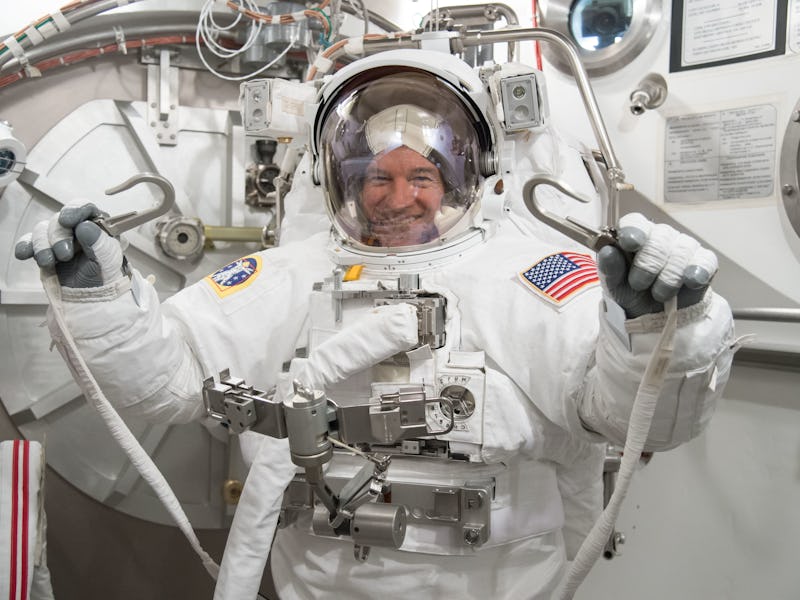Astronaut Jeff Williams: "I Wouldn’t Say I’m Nervous" About Fourth Trip to Space
His six-month stay will give him the most cumulative days ever spent in space for an American astronaut.

The world is eagerly waiting astronaut Scott Kelly’s return to Earth on Tuesday, but NASA and its partners are already focused on the next launch. On March 18, three-time astronaut Jeff Williams will take off toward the International Space Station for a six-month stint.
Williams, a 58-year-old Wisconsin native, will be in space for the fourth time since his NASA career began in 2002 — and this will be his first time back at the ISS since 2011. By the time Williams comes back to Earth, he’ll have logged in 534 cumulative days in space — more than any U.S. astronaut ever (and beating current record-holder Kelly).
Currently wrapping up his training at the Gagarin Cosmonaut Training Center in Star City, Russia, Williams took some time to speak with Inverse on Monday and talk about his upcoming trip to the ISS.
You were last aboard the ISS in 2011. Have the preparations been different this time around?
There’s been a lot of new training on new experiments that are currently on board, some new content, and things like the space launch that are planned — so all of that has taken us the last two-and-a-half years. That included backing up Scott Kelly for the one-year flight, who of course launched one year ago.
What kinds of experiments will you be working on that you’re most excited about?
We’ve got experiments planned across the spectrum of all the different scientific disciplines. I guess the category that is among the more interesting ones to me will be the study of the human body and effects of the [space] environment, weightlessness, and other factors out in space on the human body — so we can develop countermeasures for the adverse effects. Those are the most interesting. They’re also a little challenging, but they’re hands-on, so that makes them interesting.
Is there anything about your upcoming six-month stay that you’re a bit nervous about?
I feel prepared for everything on the plan. I wouldn’t say I’m nervous about anything. However, I also know that in this business you have to be prepared for the unexpected. So generally all of us go there a bit on our guard for anything that might pop up unexpectedly.
How exactly did you get started as an astronaut, and how has your career led to this upcoming mission?
When I graduated from high school, I had the opportunity to go off to the U.S. Military Academy at West Point, and that got me started on a military career in the army. I spent 27 years in active duty, during which time the army gave me the opportunity to not only go to flight school and become a pilot but also later earn an advanced degree in engineering and become an experimental test pilot. All of that and some other opportunities I had in my career made me competitive with NASA. After applying several times, from the mid-‘80s to the mid-‘90s, I finally got selected in ’96, and I’ve been focused with the ISS ever since.
Can you tell us a bit about the rest of your crew up there?
I’m looking forward to being on board with everybody, both the crew that I’m launching with and the crew already up there. They’re all friends of mine, and I’ve gotten to know them very well. With [Russian cosmonauts] Alexey [Ovchinin] and Oleg [Skriprochka], we’ve been training for the last couple of years, primarily here in Russia as well as in Houston, Texas. I’m really looking forward to flying with them, and I feel really confident we have a great crew. We’re all going to have a great experience.
Do you already know what your plans with NASA are in the future?
I’ve kind of made it a little self-imposed over the years that when you’re faced with a mission like this — especially an expedition to the space station — that I don’t try to think too much about what’s going to come after the flight, so that I can make the focus the flight [itself]. Getting through the flight, executing everything as planned safely and effectively, and then returning and letting the dust settle to reintegrate with my family and friends. Then I’ll start evaluating what I might do next.
That being said, I have no intention to leave NASA any time after the flight. I intend to come back and continue to apply the experience to this program.